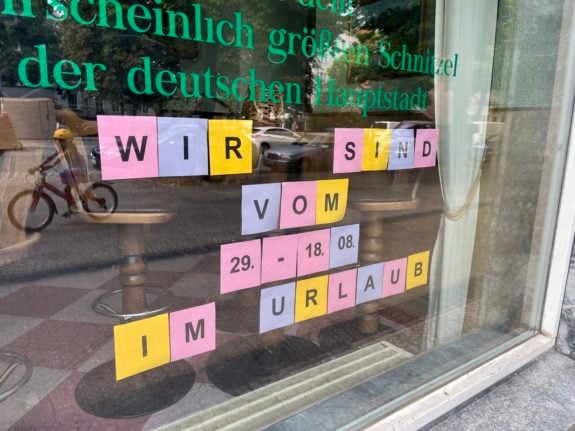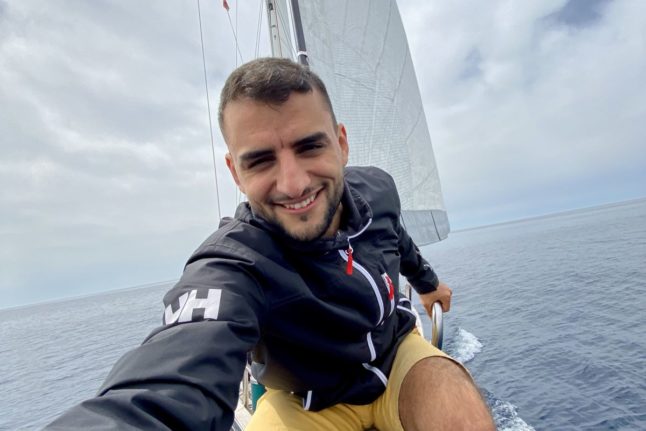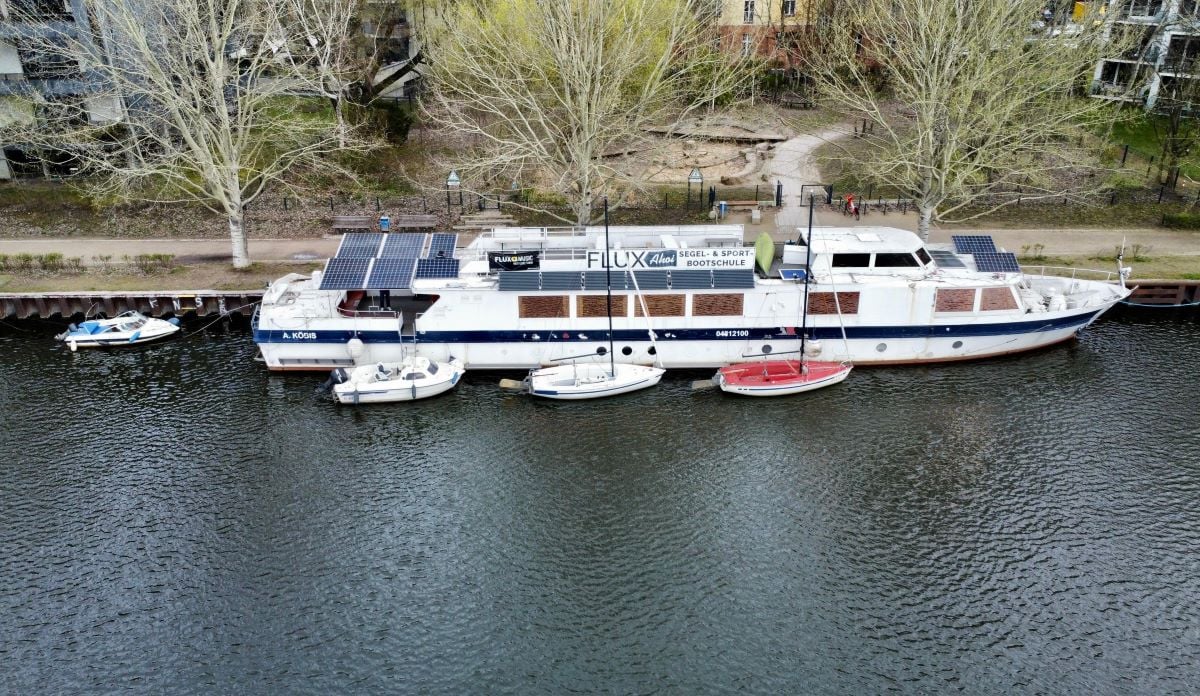Shut up shop for weeks (or enjoy the quiet)
You know it’s summer in Germany when your local restaurant, cafe or shop closes.
And it’s never just one or two days off – you can expect businesses to close for weeks on end. Usually, people shut up shop for two to six weeks in the summer over July and August. You’ll find notices on doors and windows telling customers: ‘Wir sind im Urlaub!’ (we are on holiday).
Take a cue from the Germans and book your own prolonged vacation from work, whether you’re travelling or not.
Or you can simply enjoy the peace and quiet in your neighbourhood or city. It won’t last long – as soon as September rolls around, things will get busy once more.
Take a Hitzefrei
If the temperatures climb up into the late 20s or 30s, you can expect some businesses to close simply because they find it too hot.
Often you’ll find a cafe with a note on the door explaining that they’ve taken a ‘Hitzefrei’ (heat free) day. Sometimes they’ll say outright that they have gone to cool off in the water. You can’t say that Germans aren’t direct.
If your boss doesn’t allow you to go home due to the weather, take a tip from the Germans and book a vacation from work when it’s forecast to be super hot. You’ll be happy to sip on an ice cold drink rather than be stuck in an office.

Go to a lake
Is there any more beloved summer activity than having a day trip at a lake? Germans love getting out into the fresh air and nature at any time of year, but during summer is when the lake culture really hits a high.
According to the Federal Environment Agency, there are more than 12,000 lakes in Germany, with most situated in northern Germany and the foothills of the Alps.
To do lakes like a German involves being meticulously prepared. You need plenty of sunscreen, access to shade and water. Bring homemade snacks, picnic blankets, towels and fresh swimwear to change into after you’ve had a swim (Germans rarely sit in their damp bathing suit). Bonus points if you embrace the FKK (Freikörperkultur) tradition and head to a nudist beach.
With the changeable weather this summer, an umbrella might also be handy for the walk back to the train station or your car.
READ ALSO: ‘Go early and state late’: Your tips for making the most of Germany’s lakes
Enjoy seasonal produce
Although many supermarkets stock fruit and veg all year round, Germans still like to eat seasonally.
And now that Spargelzeit (asparagus season) has been and gone for the year, we are into Erdbeersaison (strawberry season).
Delicious strawberries are often sold at the side of the road in little stalls, and there are also the famous stands run by Karls Erdbeerhof that pop up all over cities. Other summer fruit favourites are watermelon, blueberries and cherries.
Germans also tuck into chanterelle mushrooms (Pfifferlinge) in the warmer months. They can be expensive at the supermarket, but you can often get a better deal from local punters selling them at the side of the road in the countryside or the outskirts of cities.
READ ALSO: How to make the most of Germany’s long summer days
Eat (spaghetti) ice cream
Germans like to tuck into ice cream even when it’s chilly outside. But the art of a beautiful Eis comes into its own in summer. Ice cream parlous extend their hours in the summer months so you can get an Eis even when it’s 9, 10 or 11pm.
One thing we absolutely recommend is a German phenomenon known as Spaghetti-Eis – pasta shaped ice cream.
The sweet treat was invented by Dario Fontanella, the owner of Eis Fontanella Eismanufaktur Mannheim in the German city of Mannheim.

The ice cream expert reportedly came up with the concept in 1969. It’s made by putting vanilla ice cream through a chilled Spätzle press to create ice cream noodles. The fake pasta is then arranged on whipped cream and topped with strawberry ‘tomato’ sauce and finely chopped ‘parmesan’ white chocolate.
Nowadays, you’ll find it in lots of ice cream parlours across Germany, including variations such as a chocolate and hazelnut ‘carbonara’ (and also vegan versions).
Fontanella, whose family emigrated to Germany from a town outside Venice in 1932, has previously said he just wanted to recreate the Italian national dish.
READ ALSO: Spaghetti ice cream to wobbly Peter – why we love Germany’s sweet summer snacks
Take a staycation
Whether it’s a day-trip or a week away, Germans love to explore their own country.
And it’s no wonder. From stunning lakes and mountains to rivers and beaches or bustling cities, there is a ton of diverse destinations to consider for your staycation.
READ ALSO: The five best Bavarian lakes for a day trip
A survey conducted in 2023 found that Germans’ favourite at-home holiday destination is the seaside, with 57.8 percent of respondents saying they love to visit the North Sea or the Baltic Sea (Ostsee).
Other coveted destinations for a getaway were the Allgäu, a Bavarian region at the foot of the Alps, Bodensee, the Black Forest, Mecklenburg Lake District and hiking favourite, Saxon Switzerland.
The Sauerland mountains in the west and the Spreewald region near Berlin, which is famous for its waterways and pickles, also made the list.
If you’re travelling by train, there is a downside to consider: summer is also the time that construction projects get underway so you may have to grapple with more delays and diversions than usual.

Attend a festival, Biergarten or picnic
Whether it’s joining a neighbourhood get-together, heading to an electronic music festival or attending a picnic in the park, this is one of the best ways to make the most of the summer in Germany.
Festivals take place all year round, but the best time to enjoy them is in the warmer months when there are longer days and fewer super-cold temperatures.
If going to an event like this isn’t your thing, there are still plenty of green spaces to enjoy in cities. Bring a picnic or set up a barbecue – but make sure to grill in the correct area so you don’t land on the wrong side of the Ordungsamt.
If you don’t fancy that, you can always rely on a Biergarten. Sitting at a long table enjoying a beer or juice al fresco is one of the joys of the German summer.
READ ALSO:
- 8 interesting festivals to check out in Germany this summer
- 10 unmissable events happening in Germany this August
Head to Spain
Although Germans enjoy taking a holiday at home, they are also known for hopping on a plane and heading to a Spanish island like Mallorca or Tenerife.
In these spots you will find plenty of German being spoken – and even some German-run facilities, such as restaurants and cafes.
Famously, tens of thousands of Germans sheepishly flew to Mallorca on holiday during the pandemic in spring 2021, even though the German government was urging people not to travel at the time due to Covid.
Not much can come between Germans and their love of a seaside break in the sun.




 Please whitelist us to continue reading.
Please whitelist us to continue reading.
Member comments